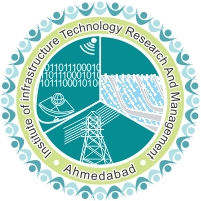Alkali Activated Soil Stabilization as a Sustainable Pathway for the Development of Resilient Geotechnical Infrastructure
Authors :- Reddy, A.S., Iyer, K.K.R. & Dave, T.N.
Publication :- Indian Geotechnical Journal, Springer 2024
Improving resilience of geotechnical infrastructure such as embankments, earth retaining structures, slopes, flood protection structures, earthen dams and dykes is extremely important to sustain the effect of extreme events such as earthquakes and floods. Soil stabilization has emerged as a viable option, for improving the properties of soil and its resilience under different mechanical and environmental loading conditions. Efforts towards development of sustainable soil stabilization solutions have led to the utilization of various industrial waste such as fly ash, ground granulated blast furnace slag and red mud; however, these materials require alkali activation to provide the suitable environment for stabilization. In this context, the study explores in details the literature to demonstrate the role of alkali activation in improving the strength, durability, and overall efficiency of soil. The underlying mechanism of alkali activation, the factors affecting strength gain process, role of different activators, binders, and their concentration/proportions on improving soil properties have been evaluated in detail. Alkali activated soil stabilization is noted to yield multi-fold enhancement in strength and superior durability under exposure to wetting cycles. The study also presents a framework to quantify the sustainability, resilience, and cumulative indices, to highlight the potential of alkali activated soil stabilization technique as a sustainable pathway for development of disaster resilient geotechnical infrastructure for future.

